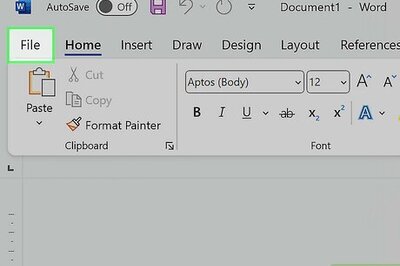
views
Houston: Union Carbide Company (UCC) and Dow Chemicals Company on Monday said it will oppose in the Supreme Court the curative petition filed by the Indian Government seeking enhancement of compensation from Rs 750 crore to Rs
7,700 crore for the victims of 1984 Bhopal gas tragedy.
UCC and Dow Chemicals, which owns UCC since 2001, issued separate statements and said the Government's petition will receive "vigorous" opposition and "strong objections" respectively when the apex court would commence hearing to
examine the plea seeking additional damages from them.
"The company expects that the petition will receive vigorous and compelling opposition when the petition is heard by the Court," the UCC, which issued its statement from its headquarter said after an apex court bench headed by Chief
Justice S H Kapadia issued notices to it and others.
The Dow Chemicals in a statement from its headquarter Midland, Michigan, said "it will lodge strong objections to the Union of India's petition seeking to reopen the 22-year-old legal settlement concerning the 1984 Bhopal gas tragedy".
It said "the Government's ill-advised action puts at peril the image of India as a nation committed to promoting and adhering to accepted legal principles and the rule of law, with the inevitable result that confidence in investing in
India will be undermined".
Besides UCC and Dow Chemicals, the apex court also issued notices McLeod Russel India having 50.9 per cent share-holding of UCIL, and UCIL, which is currently known as Eveready Industries Ltd, on a petition filed by the Centre seeking payment of additional damages from them.
UCC said that the release of the gas from its plant in Bhopal was a "horrific" event that changed the industry forever and it "understand why after over two decades the feeling of loss still exists".
Dow also said the Bhopal episode of 1984 was "a tragedy of such immense and unprecedented scope that it is understandable for anger and grief to remain more than a quarter of a century later".
However, UCC said that in 1989 it settled the litigation related to the Bhopal gas release, without any judgement on the company's liability, in deference to the wishes of the Supreme Court of India to swiftly compensate the victims of the tragedy.
"The settlement was reached between the Government of India and UCC as well as its then-subsidiary, Union Carbide India Ltd. As a matter of law, the 1989 settlement is fair, final and irrevocable," the UCC said.
It said the Supreme Court has twice validated the settlement (in 1991 and 2007), refusing to reopen challenges and acknowledging the long-standing position taken by the Government of India that the settlement is fair, reasonable
and final.
Dow chemicals, the Michigen-based firm termed center's decision to file a curative plea as "abrupt turnaround" and it was not understandable why it opened it again after full and final settlement.
UCC said as recently as November 2010, India's Welfare Commissioner the Government official charged with overseeing compensation payout for Bhopal victims filed an affidavit with the Supreme Court urging that the settlement not be reopened.
"Nothing has occurred over the past three months to justify a change in the Government's position," it said.
The Government's action will serve only to undermine the global perception of India as a nation committed to the rule of law and the integrity of legally-binding agreements principles that must form the foundation of confidence and
certainty in ongoing investment in India by the international community.
Twenty-two years ago, the Supreme Court of India took considered and deliberate steps to ensure a fair and appropriate resolution of existing and future claims related to the Bhopal gas tragedy.
The Government of India entered into the binding settlement in 1989, received all moneys due under the settlement agreement, established the compensation programme, and controlled the criteria for, and distribution of,the settlement funds.
Respect for the rule of law and principles of due process led the Court to reject challenges to the settlement in the past, and should lead it to reject the Government of India's unsubstantiated and unwarranted action now.
Dow also said equally incomprehensible is the Government's demand to attach liability to Dow, which has no connection to the tragedy or its aftermath. Dow never owned, operated or inherited Union Carbide India Limited's (UCIL)
Bhopal site.
"The fact that Dow could not have liability for the Bhopal gas tragedy is recognised not only under principles of US corporate law, but by the laws of India as well," it said.

















Comments
0 comment